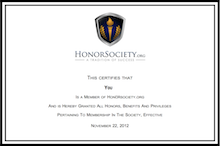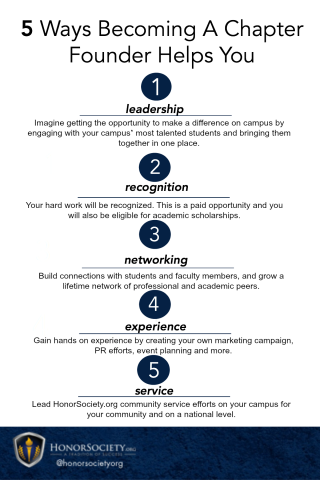What Is the Role of an Academic Community?
Mar 29,2018
Academia continues to evolve but not always in lock-step with pedagogy. The question of what role an academic community plays comes forward. Especially as different types of educational institutions rise and fall.
Higher education trends show a marked uptake of students looking to learn from online or distance classes. Reasons for this include time-saving and structuring, especially when trying to work and school at the same time.
The other reason was the level of attention and ability to learn at one's own pace. Overall, the numbers tell a story of modern education.
Even as the locations and methods shift between physical and online locations, the role of the academic community remains the same.
Academic Community
An academic community involves the students, the faculty, and a halo of interested parties. Each wants to help and benefit the others, but the pathway to any given objective isn't always clear.
When discussing a community the forest and trees can get confused.
What is a cause and what is an effect isn't always clear. One of the reasons academic definitions become tedious revolves around this need for accuracy to create clarity.
So, an academic community's role is to provide support. But how does it provide that support and why is support needed? Well, the next couple of sections will nail that down.
Knowledge Production Not Knowledge Consumption
The scope of information defines the biggest difference between learning institutions. Higher education doesn't just represent more information, but also different approaches to it.
Trade schools teach rote skills which can be applied quickly to complete tasks. They provide valuable knowledge to people who provide valuable services and products.
Colleges, likewise, provide a bulk of knowledge to understand a field.
Universities broaden their horizon and provide background and some interdisciplinary views.
Elevating each of these institutions above being 'just school' is their ability to produce knowledge, not simply provide it. It isn't too far from the adage about fishing. Teach a person how to learn and they can learn for life.
An academic community provides the support necessary to make the leap from knowing a physics formula to creating an application for that formula.
Professional Organizations
One of the key components of an academic community is the working world. This end goal of education and knowledge plays a part in guiding the process.
Professional organizations want to encourage and cultivate certain skill sets in future candidates. They have a strong financial incentive in doing so, but they also have a legacy.
Each class that leaves a school and enters a field aided by a professional organization strengthens the chain. If these chains disappear they take utility with them. The older knowledge and the newer knowledge no longer have the ability to temper each other.
Professional organizations provide a glimpse of the working world by reflecting the necessity of skills and problem-solving acumen. They also create a tether for transitioning between education and work. When the working world becomes an extension of the educational world, both worlds benefit.
Sum Greater Than the Whole
The gestalt effect holds true in a lot of communities. More people working together bring a better solution than several people working in isolation.
An academic community builds upon the knowledge pools of the past. This interconnects disciplines to create new solutions.
The classical education of modern universities was designed to replicate this effect. They want each student to understand just enough of what other majors and graduates do, so they can not take away, if not outright contribute.
Without an academic community, trying to keep all of the people working towards a common goal becomes frustrating and confused.
Nobody knows what anyone else is doing, and some people will fight for resources. The community helps to spread the resources to the needs and keep the information channels open.
Feedback
Few things provide as much assistance as organized and reasoned feedback. Growth accelerates when people know what they are doing right and what they are doing wrong.
Feeback is essential to know when efforts are making diminishing returns.
Academic communities help students to learn without -inventing the wheel. Student-led initiatives also provide feedback for the institutions. These show how new information can be integrated into the educational and working worlds.
Trends in education go up as often as they come down. Students innovate and educators maximize time and again. Together they create a system which takes less effort for all and brings in bigger returns.
Support in the Trenches
Post-graduates and students working on PhDs need first-hand support. Relationships with those that have been there and know what it's like are invaluable.
One of the leading reasons for the rising popularity of online and distance courses comes down to the level of attention and assistance that students receive.
Students don't do well tackling seemingly insurmountable obstacles. Knowing that someone else defeated the same challenges provides hope.
An academic community provides support from others that have been there and done that. it also provides resources built by those same people to make the process more accessible and more valuable.
Creating new knowledge doesn't happen without a struggle. When deadlines loom and words can't be found, a few helping hands and like-minded sufferers can make a world of difference.
Get Involved
Getting involved with an academic community provides benefits for each member. The strength of a group comes from the strength of the individuals. The more people involved who bolster each other, the stronger the community becomes.
While it can be difficult to know how much to take on, and when to accept help from others, a solid academic community provides the information to get past those obstacles too.
We have a wealth of information about educational opportunities and struggles. We also stay up on all the noteworthy news in changing education techniques and happenings.
Joining professional organizations and expanding your world won't do the work for you. However, it will remind you what more the world has to offer and why you are out there building something.





